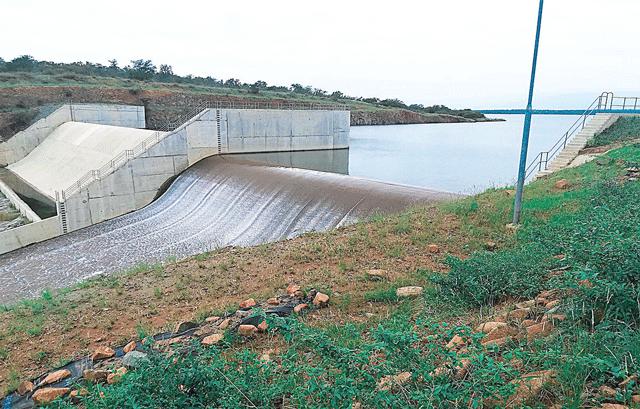Africa-Press – Eswatini. Serious concerns and questions on prioritisation of local firms in expenditure of public funds have been raised over ESWADE’s decision to pre-qualify only foreign companies in the first phase of Mpakeni Dam construction tender worth nearly E3 billion.
The gripe as to who should be given first preference when spending public funds emanates from the pre-qualification of companies from Turkey, China and South Africa for the construction of the Mpakeni Dam and associated works including the dam’s permanent access road.
The pre-qualification process which has seen no local joint venture being qualified, has made the project a three-horse race between Limak Insaat Sanayi Ve Ticaret A.S., Turkey; 2. Sinohydro Bureau 8-15 Joint Venture (Sinohydro Bureau and Sinihydro Corporation Engineering Bureau), China; and 3. WBHO/Stefstocks Mpakeni JV Joint Venture (WBHO Construction (Pty) Ltd and Stefanutti Stocks (Pty) Ltd), South Africa).
The prequalification process takes place prior to the bidding process for procurement of works under open competitive bidding (international) (OCBI) procedures, in projects financed in whole or in part, by the African Development Bank.
Eswatini Observer understands that local companies which had shown interest in the multibillion job through submission of tender documents to be pre-qualified as well were sidelined during evaluation.
It has been alleged by ESWADE in evaluation results that locals were sidelined supposedly due to the lack of capacity and experience to undertake the project. This was despite frantic efforts and supporting evidence showing that they were well capacitated and experienced to construct the dam.
The decision has also received criticism due to the fact in the past, ESWADE granted tenders to Eswatini companies to construct Maguga and Lubovane Dam.
ESWADE Chief Executive Officer (CEO) Samson Sithole has admitted that the dams were delivered by joint ventures and consortiums involving local companies. He said the prequalification document permitted Eswatini companies to form JVs or consortiums or associations in order to meet the selection criteria as set out in the prequalification document.
Sithole went on to say in terms of the prequalification document, an applicant may be a private entity, a state-owned enterprise or any combination of such entities in the form of a joint venture under an existing agreement or with the intent to enter into such an agreement supported by a letter of intent.
In the case of a joint venture, he said all members ought to be jointly and severally liable for the execution of the entire contract in accordance with the contract terms.
“Unless specified in the document, there is no limit on the number of members in a JV,” said Sithole which prompted another concern as to why ESWADE this time felt local companies could not implement the Mpakeni Dam project in partnership with international companies.
For More News And Analysis About Eswatini Follow Africa-Press







